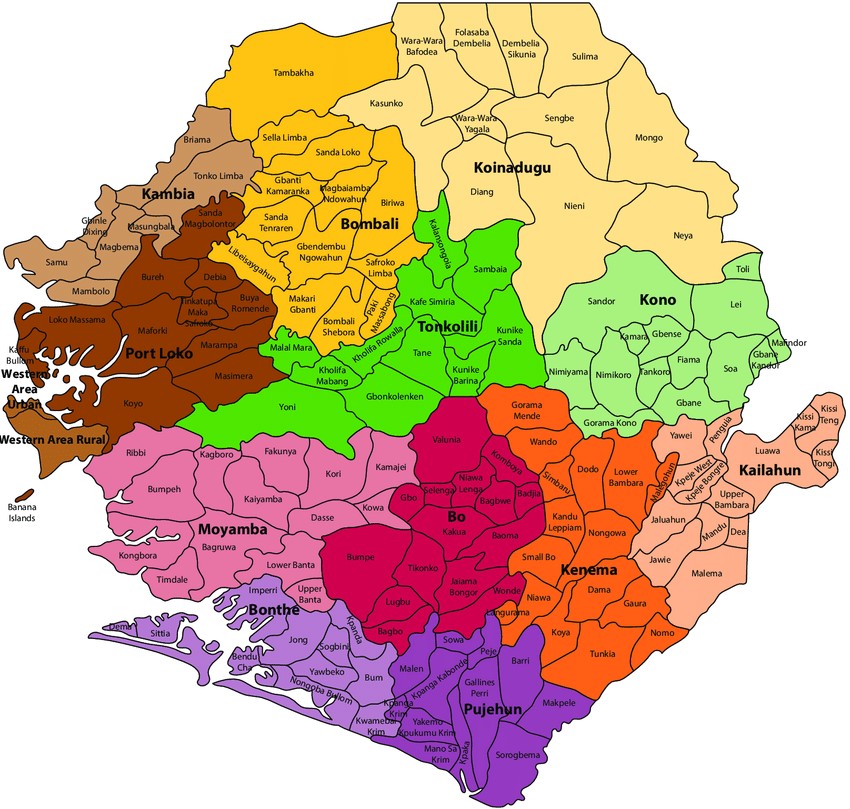By Alusine Fullah
Is tribalism—the fierce loyalty that individuals feel to their party, religion, or ethnicity— gradually destroying Sierra Leoneans?
Tribe can be defined as a group of people in a traditional society that are linked by blood, religion, similar culture. These group of people share same ancestors or common leaders and they have similar customs and traditions. Akinsola Akiwowo stated that a tribe is a group of people greater in number than people of extended kinship group. This group share same culture, same tradition, same language and same name. They reside in the same geographical area either in different homes or villages connected by marriage. Some of these tribes portray politically consolidation which is much more compounded than a group of kin. Some tribes are more organised politically than others.
Tribalism breeds unequal treatment of the citizenry in a country. The equal treatment of these citizens and their fundamental rights are the basis of democracy. Although, Nigeria had signed various international treaties, there is always absolute disregard of these treaties by the heightened discrimination and violation of people’s rights.
Tribalism depicts exclusivity, clan-based. When a particular ethnic group pay no regard to another ethnic group, it portrays that it is deep-rooted and innate and this connotes tribalism. Tribalism is a behaviour that shows that people are extremely loyal to their group than other groups or their country. Tribalism in Sierra Leone determines how people act, think, react and who they oppose or compete against.
For instance, Somalia, Kenya and Rwanda have shown the dangers of ethnic competition and underscore the importance of building nations around ideas rather than clan/ tribal identities. Sierra Leone’s pre and post-election violence revealed the extent to which tribal forces could quickly bring a country to the brink of civil war. The challenge to democracy in Sierra Leone is not the prevalence of ethnic diversity, but the use of identity politics to promote narrow tribal interests.
Today, Sierra Leoneans have exploited tribal loyalty to advance personal gain, parochial interests, patronage, and cronyism. But tribes are not built on democratic ideas but thrive on zero-sum competition. As a result, they are inimical to democratic advancement. In essence, tribal practices are occupying a vacuum created by lack of strong democratic institutions. Tribal interests in Sierra Leone have played a major role in political conflict and civil unrest across the country.
The impact of tribalism in Sierra Leone cannot be underemphasized. Since the inception of the civilian rule, there has been tribal mode of voting which engenders tribal politics after the election. The debate on who gets what give rise to tribal conflicts and discordance. There has been presumption that sufficient education of people in Sierra Leone will shrink tribal loyalty. Education of Sierra Leone might have lessened tribalism as there are more educated people who are advocating for demise of tribalism. However, there are other educated politicians who in a bid to outsmart their opponents have intensified tribal allegiance. Numerous Sierra Leonean politicians have opined that the extermination of tribalism will alleviate countless problems the country is facing; however they have not done anything that will placate the impact in Sierra Leonean politics. It is regrettable that the Sierra Leonean politics and other works of life are deep-rooted in tribalism despite the view point of many Sierra Leoneans.
As a writer, I recommend that Sierra Leone Parliament considers enactment of laws solely targeted on inhibiting discrimination on the basis of tribalism. The enactment of more and better laws on discrimination will assist people whose rights have been violated as a result of heightened tribalism in Sierra Leone.
The Constitutional provisions prohibiting discrimination on the basis of ethnic group is not sufficient. The derogation of right to freedom from discrimination on the basis of tribe should be properly defined and exemplified. The international treaties on human rights should be domesticated so that there will sufficient laws on discrimination. When this done, awareness should be made to encourage people and communities that allege that they have been denied of certain privileges on the basis of their tribe to institute actions in the court. Communities that are marginalized should be paid attention to by the government. Political leaders are to be dissuaded from according unmerited privileges to people of the same ethnic group with them.
Parliament and the justice system have a crucial role to play in impeding the tribalistic practices that violate human rights. The sufficiency of legislation on discrimination will empower the minority ethnic groups that allege that they have been denied certain privileges and also people whose rights have been violated on the basis of tribe. The discrimination against people of certain tribe can be watered down by the enactment of laws specifically targeted at eliminating discriminatory practices on the basis of tribe. The political leaders should be reminded of their allegiance to the citizenry and not their tribesmen.












